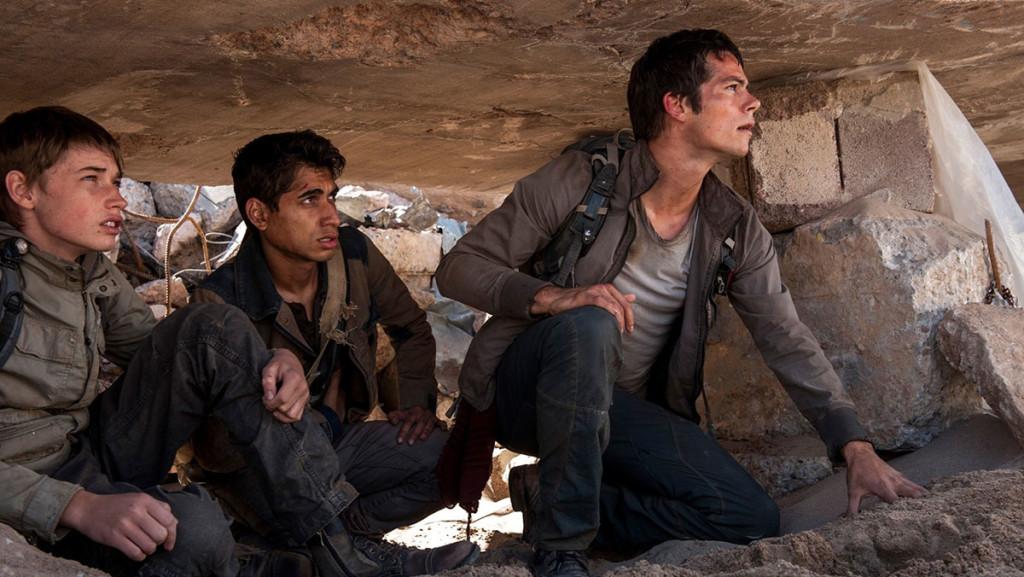“Maze Runner: The Scorch Trials,” directed by Wes Ball, has fallen prey to the dangers associated with making a sequel. Its predecessor, “The Maze Runner,” put a twist on the dystopian young adult genre that made it worth watching, but “Scorch Trials” is so over complicated and scattered that it’s hard to find satisfaction watching it.
“Scorch Trials” picks up where “The Maze Runner” left off: A band of teenagers who have just escaped from a mysterious environment in which they were trapped by a giant, constantly evolving maze must contend with the dangers that lie in the outside world, known as Scorch. The group, led by Thomas (Dylan O’Brien), is on the run from WCKD — pronounced “wicked” — the organization that put them in the maze. As they learn more about WCKD and remember their lives before the maze, Thomas and his friends must fight for their freedom.
James Dashner’s “Maze Runner” series, on which “The Maze Runner” and “Maze Runner: The Scorch Trials” are based, has been criticized for its complicated style, and the film adaptation of “Scorch Trials” is equally as complex. The plot can be quite difficult to follow because if the main story wasn’t complex enough, the detours through the Scorch add a patchwork of ideas that are never fully fleshed out. The group first encounters victims of the Flare virus, a mysterious illness that WCKD is seeking a cure for. Then they wander through the desert and meet a group of rebels led by Jorge (Giancarlo Esposito) and Brenda (Rosa Salazar). The main action is interspersed with random elements from other genres, including an action scene inexplicably set to a Patsy Cline song, and a bizarre rendezvous in an underground club. These unnecessary scenes distract from the main plot rather than adding dimension to the Scorch.
The setting is extremely underdeveloped — there is no explanation as to how the Scorch came to be or what society is like there, which is more confusing than it is mysterious. There are several horror scenes which are gripping and offer a glimpse of the Scorch’s dangers, but they end quickly and are seemingly forgotten in the later part of the film. It’s hard to care about what’s at stake in a dystopian universe when the audience sees so little of it. The characters aren’t realistically representative of what life in this world is like because they’re all either high-level executives, rebel outsiders or people who have been trapped in a maze and can’t remember how to live in the real world.
The movie dawdles in the middle while attempting to develop Thomas’ and Brenda’s storylines, yet both characters are somehow less interesting by the end of the film. The entire cast undergoes little to no character development whatsoever, and the strong ensemble that made “The Maze Runner” dynamic barely gets any screen time.
The talented cast is wasted on an ineloquent screenplay by T.S. Nowlin, even though the actors do their best to add life to the dialogue. O’Brien’s performance as Thomas is the best part of the movie, perhaps because it is the most coherent. Two standout performances among Thomas’ friends are those from Ki Hong Lee and Thomas Brodie-Sangster, who play Minho and Newt, respectively. Each one shines on screen, but they are barely present for a large chunk of the movie. Esposito and Salazar are a good pair of rebel leaders and friends, and are great additions to the cast. Aidan Gillen’s performance as Janson, an employee of WCKD, is appropriately creepy, but it’s unclear what his purpose is in the story. Kaya Scodelario’s portrayal of Thomas’ love interest, Teresa, is the flattest and least impressive. Her character seems like an afterthought throughout the film.
“Maze Runner: The Scorch Trials” offers no real resolution or satisfaction for viewers — it takes place in the middle of a series, but that doesn’t mean it shouldn’t have a complete narrative arc. Everything about this film simply feels like a strange interlude rather than a story in its own right. The characters seem as lost at the end of the film as they were at the beginning because of the lack of clarity and purpose in “Scorch Trials,” except now the audience is just as lost as the characters on screen are.




















